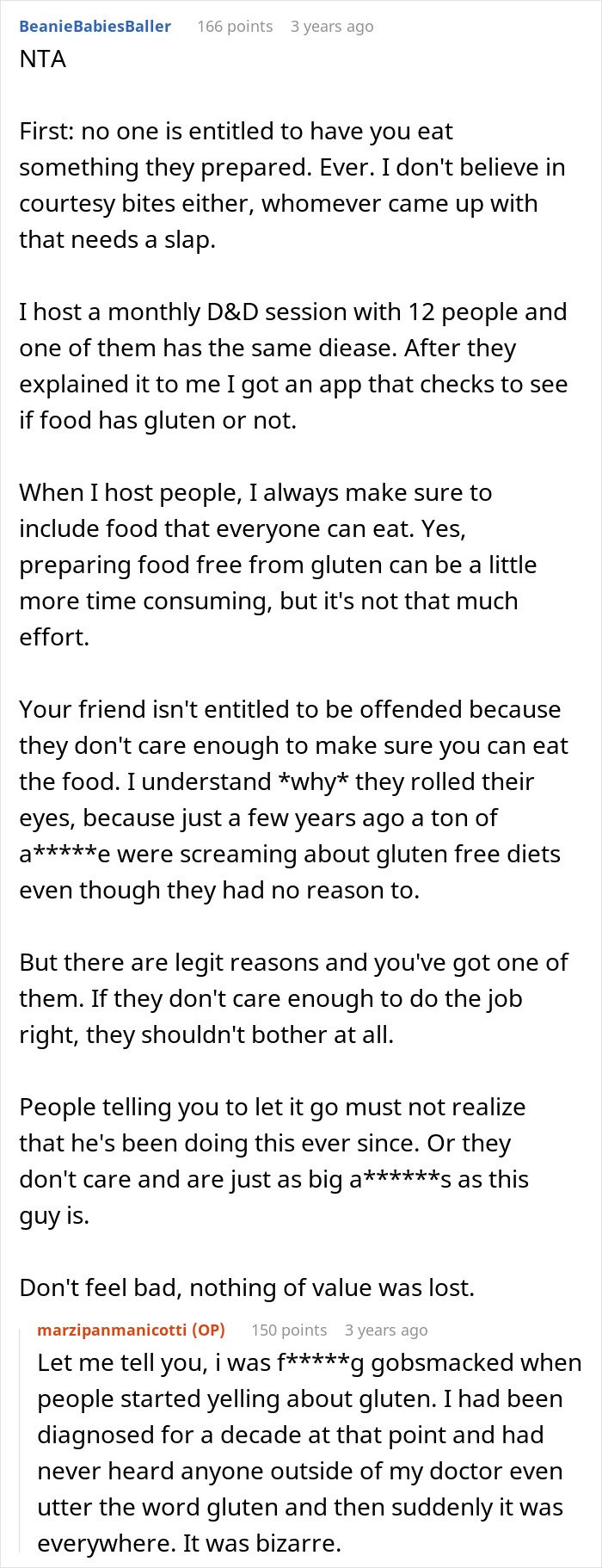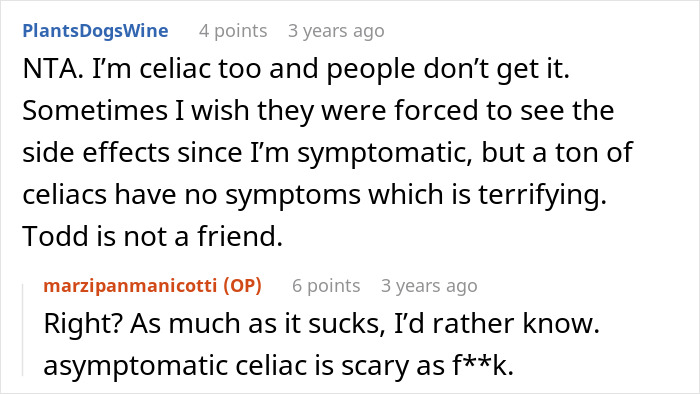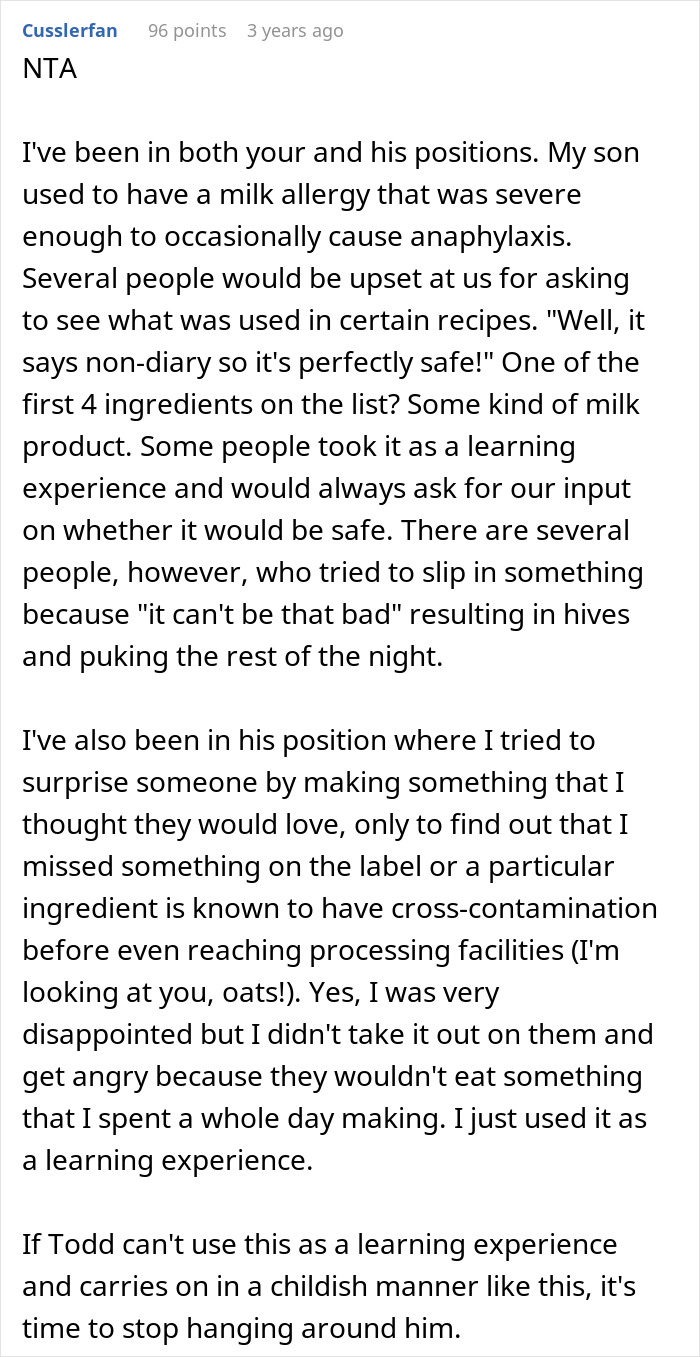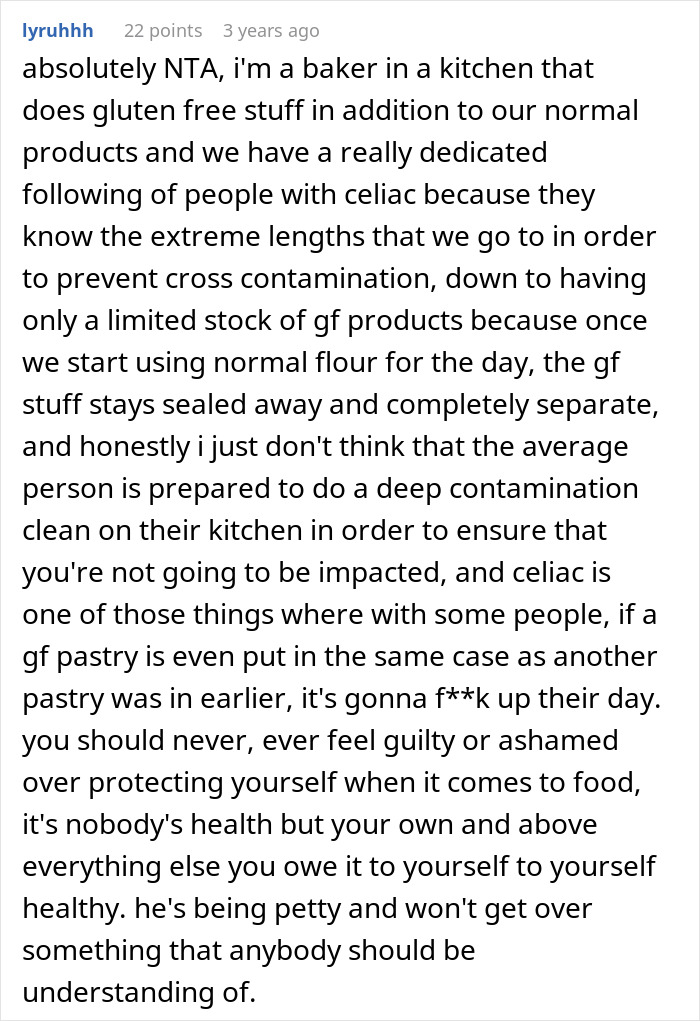Having a special need that has to be accommodated is a good way to test who is really your friend or not. After all, if you had a friend that had a dietary restriction, for whatever reason, you would probably do your utmost to take it seriously if you were making them a meal. However, some folks think that taking the slightest extra effort with something is basically enough and anything more is excessive.
A woman asked the internet if she was wrong to snap at a friend who would not take her celiac disease seriously. We reached out to the woman who shared the story via private message and will update the article when she gets back to us.
Celiac Disease is a serious condition and really needs to be taken seriously

Image credits: seventyfourimages / envato (not the actual photo)
So one woman was very frustrated when her so-called friend got annoyed that she realized the dish he cooked wasn’t gluten free

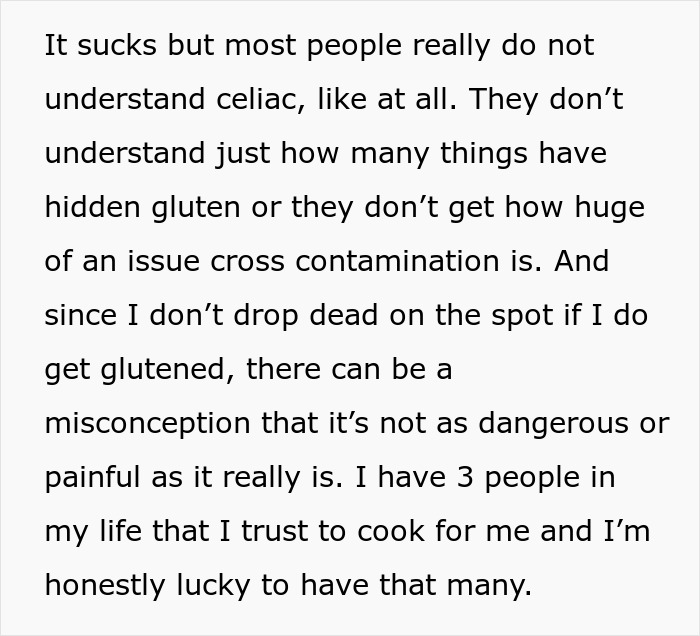

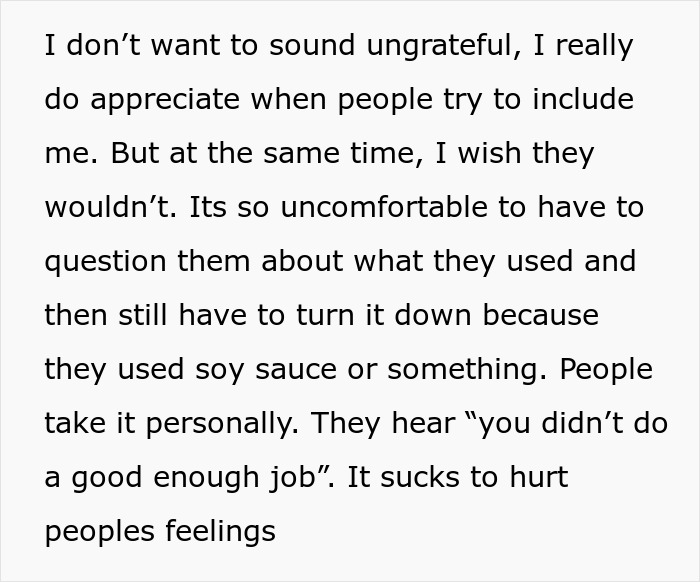



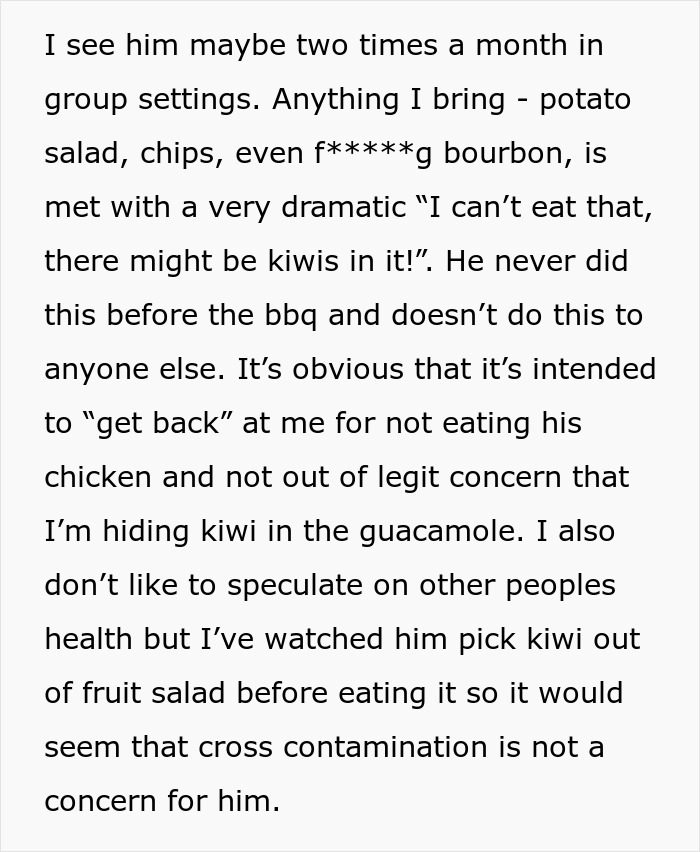

Image credits: YuriArcursPeopleimages / envato (not the actual photo)


Image credits: marzipanmanicotti
Symptoms can vary, but are often very uncomfortable
Celiac disease is an autoimmune disorder where the ingestion of gluten, a protein found in wheat, barley, and rye, triggers the immune system to attack the lining of the small intestine. This immune response damages the intestinal villi, which are responsible for nutrient absorption, leading to a wide range of symptoms from digestive issues, fatigue, and anemia to more subtle signs like joint pain or skin rashes. While celiac disease is often confused with gluten sensitivity or wheat allergy, it is a distinct medical condition that requires strict adherence to a gluten-free diet to prevent long-term health complications. The fact that some folks just prefer to not eat gluten should not be confused with this condition
One of the most common misconceptions about celiac disease is that it’s merely a food intolerance or a trendy way to eat healthier. Many people mistakenly believe that if you feel bloated or uncomfortable after eating gluten, you must have celiac disease. In reality, gluten sensitivity and celiac disease are different entities. Gluten sensitivity might cause discomfort, but it does not involve the autoimmune response or intestinal damage seen in celiac disease. Misunderstanding this difference can lead to underdiagnosis or inappropriate self-diagnosis, as well as unnecessary dietary restrictions for those who don’t medically require them.
Another misconception is that adopting a gluten-free diet is a cure-all solution. While a strict gluten-free diet is essential for managing celiac disease, it is not a cure, instead, it prevents further damage to the intestine and helps manage symptoms. People often see the popularity of gluten-free products as evidence that gluten-free eating is inherently healthier, but for those without celiac disease or gluten sensitivity, gluten is generally harmless and even beneficial as part of a balanced diet. The rise in popularity of gluten-free diets in the mainstream has, in part, contributed to the trivialization of a serious medical condition. People confuse their friend who is essentially limiting carbs to someone who would have serious side effects if they ate pasta.
It’s a condition many people do not take seriously enough

Image credits: Artem Labunsky / unsplash (not the actual photo)
Furthermore, many assume that celiac disease only affects the digestive system, but its impact can be systemic. Because malabsorption of nutrients occurs as a result of intestinal damage, individuals with celiac disease might experience a variety of non-digestive symptoms such as osteoporosis, neurological issues, or infertility. This misconception that celiac disease is limited to gut discomfort leads to delays in diagnosis, especially in cases where classical gastrointestinal symptoms are absent or minimal. Educating both medical practitioners and the public about the diverse manifestations of the disease is crucial for timely and effective treatment.
There is also a lack of understanding regarding the genetic component of celiac disease. It is known to have a hereditary predisposition, meaning that if one family member is diagnosed, other close relatives might be at risk. However, just because someone carries the genetic markers does not guarantee they will develop the disease, leading to both overestimation and underestimation of its impact among families. This nuance is often lost in general discussions, contributing further to the blanket mischaracterizations of the disease. This is why you can’t just assume that one person with celiac disease will act like any other person with the same or similar condition.
Ultimately, dispelling these misconceptions requires better public education and clearer communication from healthcare providers. When people understand that celiac disease is a serious, systemic autoimmune disorder, not just an inconvenient sensitivity, they are better equipped to support those living with it. With a more informed perspective, society can move beyond the notion of gluten-free eating as a fashionable fad and recognize the genuine health challenges faced by individuals with celiac disease. Unfortunately, this man, who should know better, just acts like a brat when confronted.
Most folks thought she didn’t overreact

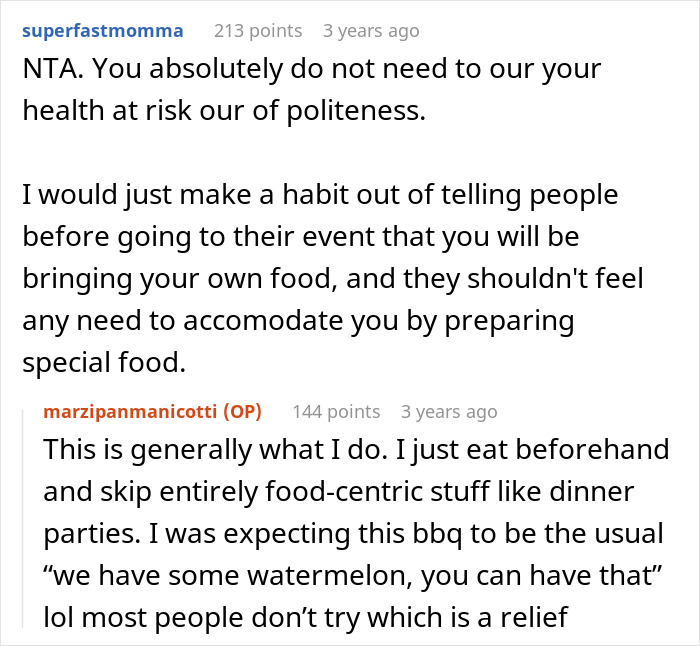
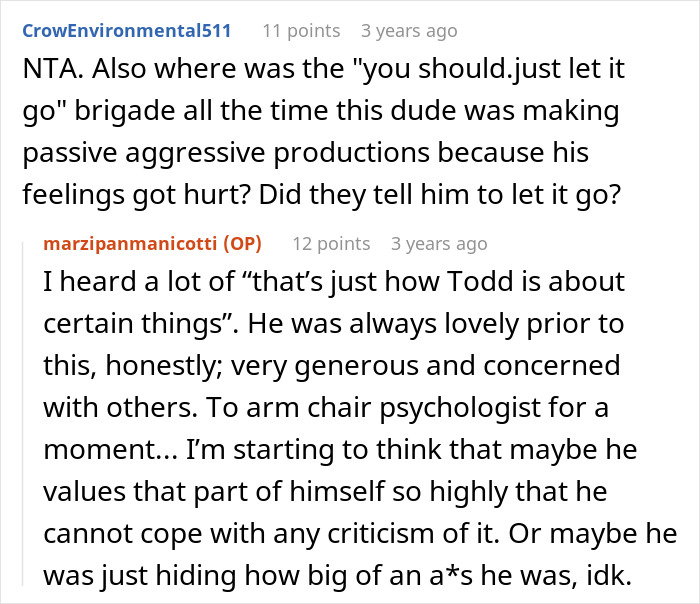



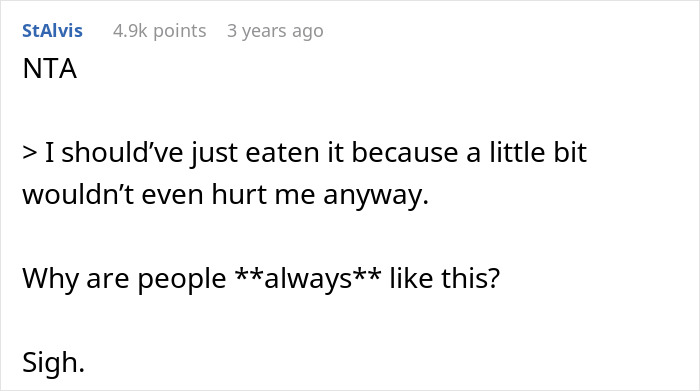


Others shared similar stories
